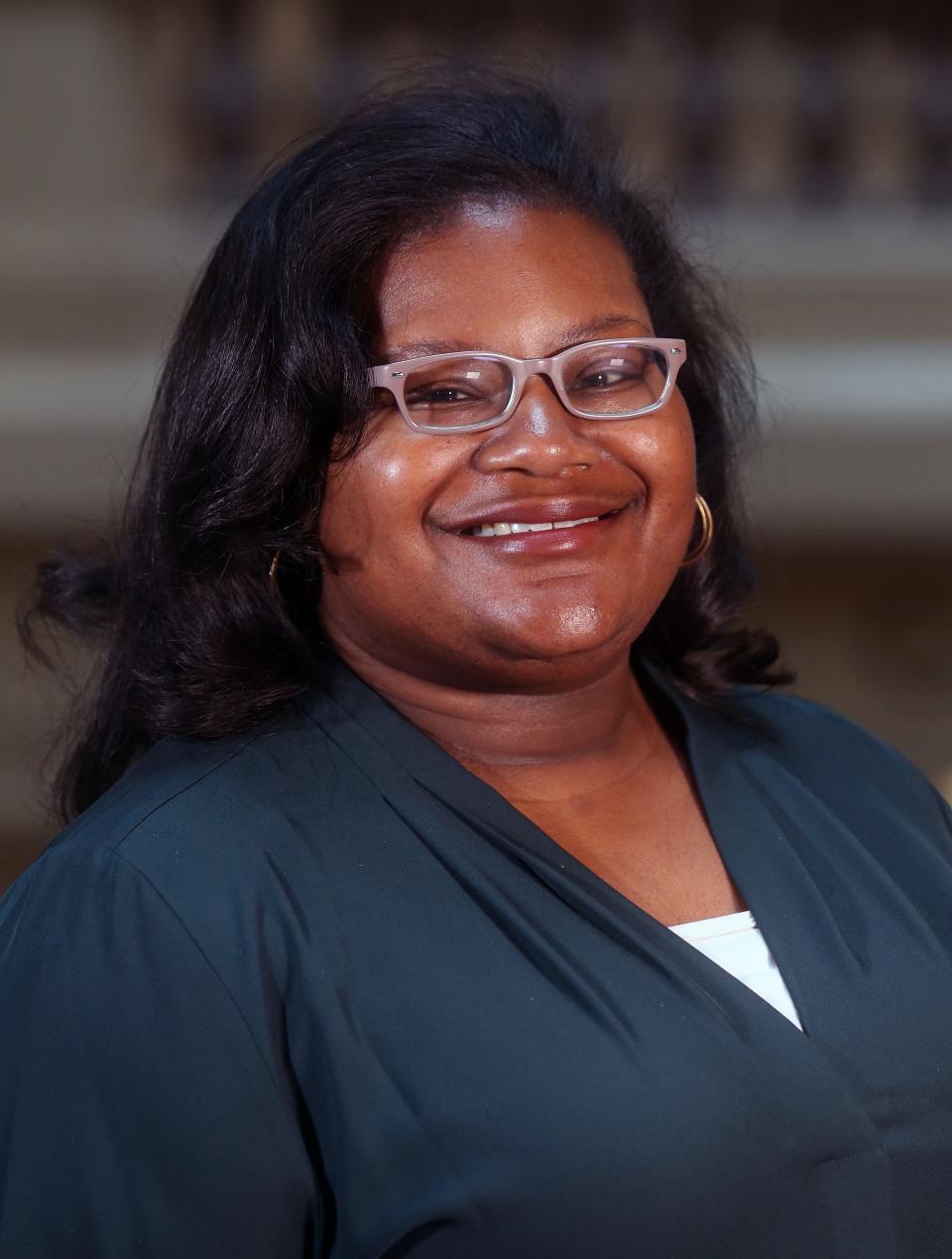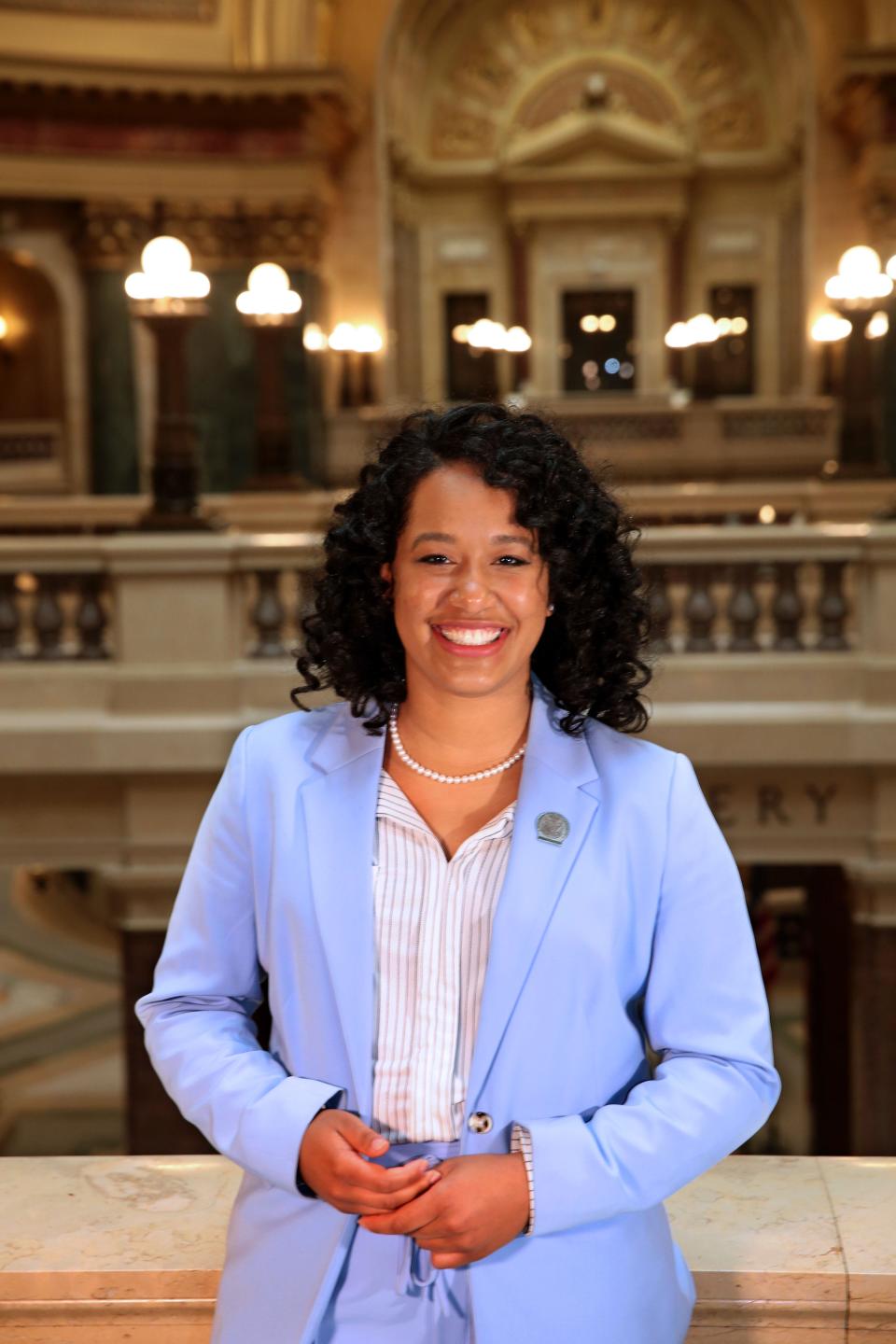What to know about the July 2 special primary election for a Milwaukee-area state Senate seat
Constituents in one state Senate district in Milwaukee have a primary election in two weeks, much earlier than the Aug. 13 primary election for other partisan offices across the state.
Here's what to know about why there's a special election for some voters in Milwaukee, who's running in it and how to make a plan to vote:
Why is there a special election in Milwaukee, and when is it?
The special election is July 30, with a primary scheduled for July 2. Only constituents of the 4th Senate District in Milwaukee will go to the polls those days, not all Wisconsin voters.
The 4th Senate District became vacant when former Sen. Lena Taylor resigned the seat after she became a Milwaukee County circuit judge.
This election is to fill the remainder of Taylor's term, which ends in January. Candidates will have to run again for a full, four-year term on the same Aug. 13 and Nov. 5 dates as other state representatives and senators.
It's been a challenge to remind people in the district that there's an election coming up, said Rep. LaKeshia Myers, who's running for the seat. Rep. Dora Drake, who's also running, said voters have remarked how quickly the election is coming up.
"July is not on people's radar as far as voting, especially not in Wisconsin. They're like, 'Wait, what? What do you mean? It's right before the Fourth of July,'" Myers said. "I'm like, 'I know, which is why I'm here to remind you.'"
More: Evers schedules special elections for seats vacated by Lena Taylor, Mike Gallagher
See the new state Senate districts
This map shows Wisconsin state Senate districts under the previous 2022 map on the left, and the new 2024 map on the right. Each district is colored according to whether itleans Democrat, leans Republican, or is acompetitive district (within 5%).
Old maps (2022)
New maps (2024)
Note: The partisan lean of districts is calculated based on voting data from national and local elections from 2016 to 2022. Districts with less than 5% difference in Republican and Democratic votes are considered competitive districts.
Map by Andrew Hahn and Eva Wen / Milwaukee Journal Sentinel
Am I included in the 4th Senate District?
You can type your address into this map of the 4th Senate District to figure out if the special election applies to you.
The district includes much of the northern third of Milwaukee County, with some carveouts like Brown Deer, Fox Point and Whitefish Bay.
The district didn't change boundaries under the new maps, unlike others in the Milwaukee area. So, if Taylor was most recently your state senator, you're still included in the 4th Senate District.
More: Which Milwaukee-area voting districts are changing, and which are staying the same?
More: Here are 10 races to watch in Wisconsin's newly competitive legislative maps
Who's running in the 4th Senate District special election?
Two Democrats are running in the primary: Myers and Drake. Both are state representatives who already serve parts of the 4th Senate District.
No Republicans filed nomination papers to run in the special election.
Who is LaKeshia Myers?
Myers has served in the state Assembly since 2018, and she has a background in education. In an interview, Myers said her top issues include state education funding; addressing problems in the state's prisons, with a focus on rehabilitation; and curbing reckless driving.

Myers said she wants a "real, robust discussion" about the ability of municipalities to have policies like red-light cameras and aircraft enforcement. She also said stakeholders like district attorneys, judges and the public need to be on the same page about using the current statutes.
Myers said she's interested in joining the Senate to be a more effective legislator: Being in the upper chamber means more staff, more variety in committee assignments and a tighter group of colleagues.
She cited her past work on passing a law addressing sexual assault by a police officer. Myers has also worked on the CROWN Act in Wisconsin to prohibit discrimination based on hairstyle or hair texture.
On the issues facing Milwaukee Public Schools, Myers said she wants to see the results of audits for insights about how to effectively use the budget to serve families better. She's concerned about disparities in programming between schools, like some not having a librarian or art teacher every day. She also said there should be a student member on the school board.
"I'm an MPS graduate, my parents both retired from Milwaukee Public Schools, I went back to teach at Milwaukee Public Schools. I have a vested interest in Milwaukee Public Schools surviving and doing well," Myers said.
Myers was working as a dean of students within the Wauwatosa School District but left under unclear circumstances earlier this year. Her departure came after the district suspended her, though Myers said she resigned on her own. Many lawmakers have a second job, but only a few work in two government-paid positions.
More: Bice: State Rep. Myers exited school job after numerous complaints from families
"I think Wauwatosa has been the fourth school district I've worked for in my career, out of 17 years. In 17 years, I had never had issues until I got to Wauwatosa," Myers said. "I think there was some consternation among folks in the district who did not like that I was a state representative and that I worked in Wauwatosa as an educator."
Here's a link to Myers' campaign website.
Who is Dora Drake?
Drake has served in the state Assembly since 2020. She has a background in social work. Her top priorities include public safety, mental health and issues that affect the workforce like child care, she said in an interview.

On reckless driving, Drake said she wants to look at models of other cities and doesn't want to just introduce legislation that increases penalties. Drake said she supports red-light cameras. She also cites her co-sponsorship of a bipartisan law that created a grant program to help low-income students pay for driver's education and wants to see that program expanded.
Drake said she wants to work on the state's laws for extended supervision and the process for responding to a mental health crisis, and have an intergovernmental response to mental health.
"I know that there is a lot of unspoken trauma that's happened in our community, whether that's gun violence, whether that's just people needing to speak to someone," Drake said. Moving up to the Senate "would allow me the time to really work on that the way I want to, meaning that I want to have community input. I want to make sure residents are part of the solution."
Drake cited her past work creating the first regulations around vaping in the state, and she supports banning flavored menthol and tobacco products. She also referenced a police accountability law that requires transferring employment files if an officer moves departments.
On MPS, Drake said she supports an independent audit to learn the extent of the situation. She said political agendas have to be set aside.
"There needs to be a way to support our teachers in the classroom, and most importantly, making sure that (the children) have the resources they need to have a quality education," Drake said. "Moving forward, we should always strive towards accountability and transparency when comes to our school system."
Myers challenged Drake's nomination papers for the election, but the Wisconsin Elections Commission kept Drake on the ballot. Drake had supporters sign the form for nonpartisan offices, such as judge, instead of the one for partisan positions, such as legislator. Her nomination papers did, however, have the phrase "Democratic Party" typed on the form. Drake called the challenge "frivolous."
More: Bice: Milwaukee Senate candidate could be bumped from ballot for using wrong nomination form
Here's a link to Drake's campaign website.
Where is my polling place, and when can I vote?
You can visit myvote.wi.gov to find information such as your polling place. If you enter your address into "What's On My Ballot" and a sample ballot for the special election comes up, you'll know it applies to you.
Polls are open from 7 a.m. to 8 p.m. on Election Day. The deadline to request an absentee ballot is the Thursday before an election, or June 27.
The city is also offering the following early voting locations and hours, also known as in-person absentee voting:
Capitol Drive Voting Center (southwest corner of 60th Street and West Capitol Drive)
9 a.m. to 5 p.m. on weekdays from June 18 to June 28
10 a.m. to 2 p.m. on Saturdays, June 22 and 29
Villard Library and Good Hope Library
1 p.m. to 7 p.m. on Tuesdays, June 18 and 25, and Monday, June 24
11 a.m. to 5 p.m. on Wednesdays, Thursdays and Fridays, June 19-21 and 26-28
10 a.m. to 4 p.m. on Saturdays, June 22 and 29
Clinton Rose Senior Center
10 a.m. to 3 p.m. on Wednesday, June 19
This article originally appeared on Milwaukee Journal Sentinel: Milwaukee-area voter guide for July 2 special primary Senate election

